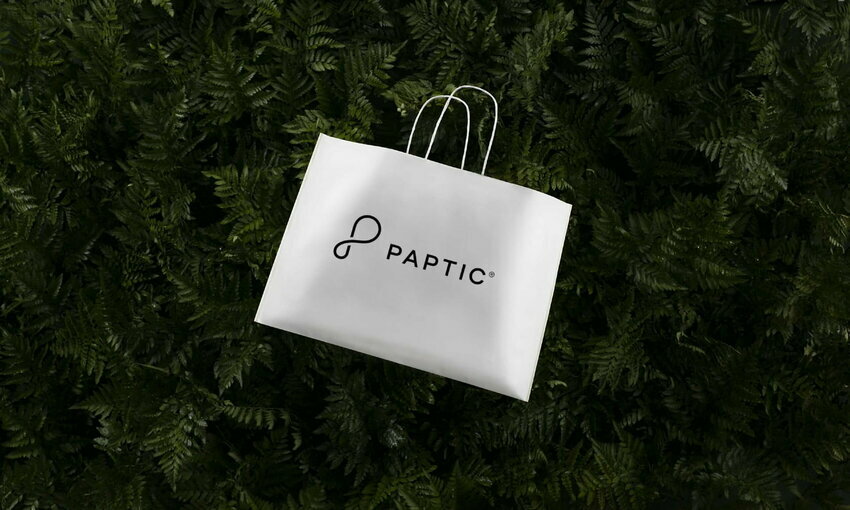 (Credit: Paptic)
(Credit: Paptic)Paptic has raised $24.6 million in growth financing that will go towards scaling up its manufacturing technology and developing the company’s product portfolio of sustainable packaging materials, allowing for Paptic materials to be available worldwide.
The company, which has more than doubled its revenue annually for four years in a row, has received financing from international equity investors, including the European Circular Bioeconomy Fund and Ecolab. Paptic also received funding from earlier shareholders, such as Itochu Fibre, and was granted $2.67 million from the European Innovation Council’s Accelerator program.
In order to facilitate an industrial scale-up of Paptic’s foam-based manufacturing technology, the Finnish Climate Fund has granted a non-dilutive capital loan of $10.7 million as well. The unique manufacturing technology, “foam forming,” uses foam where water is usually used in paper manufacturing. This allows for product features that are not yet possible with traditional paper and plastic production technologies and creates products from sustainably sourced wood fiber.
“Our rapid progress from a startup to a high-growth company, with Paptic materials in use by over 100 customers globally, has made us an appealing investment opportunity and we are delighted to welcome our new international investors to join us,” said Tuomas Mustonen, CEO and co-founder of Paptic. “A cornerstone of our operation is to work in accordance with the principles of circular economy, to this end, we support our customers to replace plastics in various flexible packaging applications. Expanding our global shareholder base was one of the targets of this round, and I am very satisfied with the outcome.”
According to Paptic, 70% of materials currently produced in the global flexible packaging market are plastics, which are currently known for being difficult to effectively recycle and for contributing immensely to worldwide pollution.
The company's products may be easily adopted by companies looking to shift away from fossil fuel-based, plastic packaging, according to Paptic. When converting to Paptic materials, existing production lines may be used, and the materials are also manufactured on current paper machines, allowing for a sustainable and scalable process, the company said. Many companies have been looking to reduce their use of plastic packaging, especially as the majority of consumers reportedly want single-used plastics banned outright, according to some reports.
Paptic plans to concentrate on strengthening its presence in Europe and accelerating growth in Asia, then exploring opportunities for expansion into North America and other markets. As the amount of packaging used around the world continues to increase, Paptic and other sustainable material companies work to ensure that continued growth does not come from increased plastic production.